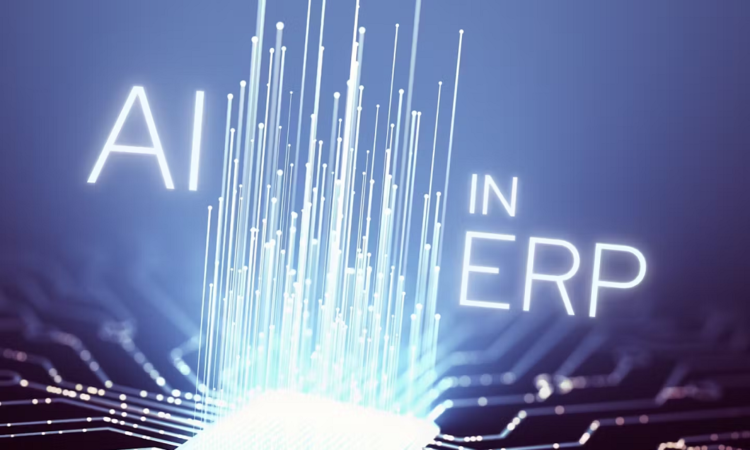
In the dynamic landscape of enterprise resource planning (erp), the emergence of edge computing has introduced new possibilities for improving performance, enhancing security, and unlocking unprecedented efficiencies. As businesses increasingly adopt cloud-based erp solutions, understanding the impact of edge computing on performance and security becomes crucial. In this blog post, we’ll delve into the transformative role of edge computing in shaping cloud erp environments, highlighting its impact on performance optimization and security fortification.
Understanding edge computing in the context of cloud erp
Edge computing refers to the distributed computing paradigm where data processing and analysis are performed closer to the source of data generation, rather than relying solely on centralized data centers or cloud infrastructure. In the context of cloud erp systems, edge computing extends the capabilities of traditional cloud architectures by enabling real-time data processing, reducing latency, and enhancing security at the network edge. Here’s how edge computing influences performance and security in cloud erp environments:
1. Performance optimization
Edge computing enhances performance in cloud erp systems by minimizing latency and improving data processing efficiency. By processing data closer to the point of origin, edge computing reduces the distance data travels and the time it takes to transmit and receive information, resulting in faster response times and improved user experiences. Real-time data processing at the edge enables faster decision-making, enhances system responsiveness, and facilitates seamless interaction with erp applications, particularly in distributed environments with remote or mobile users.
2. Security fortification
Edge computing strengthens security in cloud erp systems by decentralizing data processing and reducing the attack surface for potential cyber threats. By processing sensitive data locally at the network edge, edge computing minimizes exposure to security risks associated with data transmission over public networks or storage in centralized data centers. Additionally, edge computing enables data encryption, access controls, and threat detection mechanisms to be applied closer to the source of data generation, enhancing data privacy and mitigating the impact of security breaches or unauthorized access attempts.
Real-world impact and implementation
The impact of edge computing on cloud erp performance and security is evident in real-world scenarios, where businesses have leveraged edge computing technologies to achieve tangible benefits:
Real-time data analysis: edge computing enables businesses to perform real-time data analysis and derive actionable insights from iot (internet of things) devices, sensors, and other edge devices deployed in manufacturing plants, warehouses, or retail stores. By analyzing data at the edge, businesses can optimize production processes, monitor equipment health, and identify anomalies or issues proactively, improving operational efficiency and reducing downtime.
Enhanced data privacy: edge computing enhances data privacy and compliance in cloud erp systems by enabling data anonymization, encryption, and access controls to be enforced at the network edge. By processing sensitive data locally, businesses can comply with data protection regulations such as gdpr (general data protection regulation) or hipaa (health insurance portability and accountability act) while maintaining data sovereignty and confidentiality.
Resilient connectivity: edge computing ensures resilient connectivity and continuity of operations in cloud erp environments, particularly in remote or resource-constrained locations with limited internet connectivity. By deploying edge computing devices such as edge gateways or edge servers, businesses can maintain local processing capabilities and store critical data locally, ensuring uninterrupted access to erp applications and services even in the event of network outages or disruptions.
Considerations for adoption and integration
While the benefits of edge computing in cloud erp are clear, businesses must consider several factors when adopting and integrating edge computing technologies:
Scalability and interoperability: businesses should assess the scalability and interoperability of edge computing solutions to ensure compatibility with existing cloud erp architectures and future growth requirements. Seamless integration with cloud platforms, erp systems, and third-party applications is essential for maximizing the benefits of edge computing while minimizing complexity and overhead.
Data governance and compliance: businesses must establish robust data governance policies and compliance frameworks to govern data management practices at the network edge. Clear guidelines for data collection, storage, processing, and access ensure regulatory compliance and protect against data privacy breaches or compliance violations.
Security architecture and threat mitigation: businesses should implement robust security architectures and threat mitigation strategies to protect edge computing environments from cyber threats and vulnerabilities. Encryption, authentication, intrusion detection, and endpoint security measures help safeguard data integrity and confidentiality, mitigating the risk of security breaches or unauthorized access attempts.
Conclusion: embracing the future of cloud erp with edge computing
In conclusion, edge computing represents a paradigm shift in cloud erp architecture, offering new opportunities for performance optimization and security fortification. By extending the capabilities of traditional cloud infrastructures, edge computing enables businesses to achieve real-time data processing, reduce latency, and enhance security at the network edge. Real-world implementations demonstrate the tangible benefits of edge computing in improving operational efficiency, enhancing data privacy, and ensuring resilience in cloud erp environments.
While the adoption of edge computing in cloud erp introduces new challenges and considerations, businesses can maximize the benefits of edge computing by addressing scalability, interoperability, data governance, compliance, and security concerns. By embracing edge computing as a strategic enabler, businesses can unlock new possibilities for innovation, agility, and competitiveness in the ever-evolving landscape of cloud erp systems.
